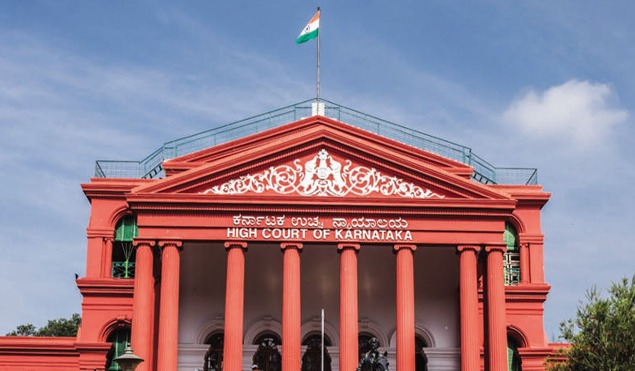
The Karnataka High Court recently dismissed criminal proceedings against Rashtriya Swayamsevak Sangh (RSS) activist N Hanumegowda on extortion charges.
A single bench of Justice Hemant Chandangoudar found no evidence that Hanumegowda had put the complainant in fear of injury in order to commit extortion or force him to surrender the money.
The Court reasoned that the magistrate could not have taken cognizance of the criminal complaint filed under Section 394 (extortion) of the Indian Criminal Code in the absence of such essential features.
“In the instant case, there is no allegation that the accused has put the defacto complainant in fear of injury intentionally, and thereby induced the defacto complainant to deliver the money to which he has allegedly demanded. In the absence of any essential ingredients so as to constitute the commission of an offence punishable under Section 384 of IPC, the cognizance taken by the learned magistrate is impermissible,” the bench stated.
The case contained charges that Hanumegowda sought money from two people who were arranging a building’s inaugural celebration.
Hanumegowda was accused of challenging the legitimacy of the building’s required authorization and allegedly demanding 2 lakh.
Furthermore, the complainant claimed that Hanumegowda threatened to disrupt the inaugural event by stopping the Chief Minister and other significant guests from attending if he was not paid the money.
Hanumegowda moved the High Court to quash the case after a magistrate took cognizance of the complainant’s first information report (FIR).
Appearing for Hanumegowda, Advocate GR Mohan contended that even if the accusations in the FIR were accepted, they did not constitute an offence under Section 384 because there was no evidence that the complainant had parted with any money.
He further claimed that there was no accusation that he made the complainant fearful of delivering the supposedly required money.
On the other hand, counsel for the complainant, Advocate D Prabhakar, claimed that parting with money was not a necessary component of the extortion offence under Section 384. He contended that simply instilling terror in a person would be sufficient to persuade them to part with their money.
Rather, he stated that the charges in the FIR revealed the conduct of the act under Section 385 of the IPC (inducing fear of bodily harm in order to commit extortion).
The Court noted that to constitute an offence under Section 385 IPC, putting one in fear of injury was an essential ingredient. However, the Court found that no material was placed to demonstrate that the Hanumegowda had put the complainant in fear. Hence, the Court concluded that the criminal proceedings against him would be an abuse of the process of law.
As a result, the Court allowed the petition by Hanumegowda and quashed the proceedings initiated against him.




